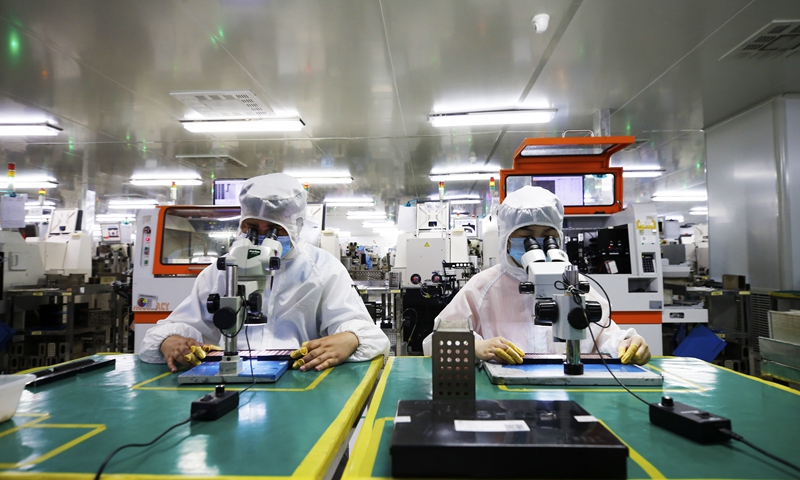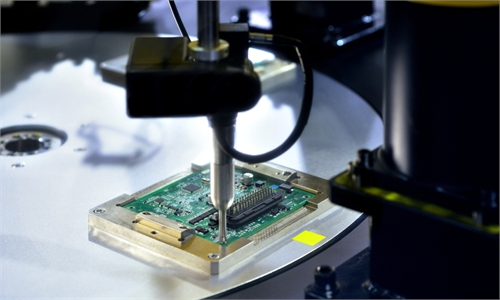
Workers are busy at a chip factory in Suqian, East China’s Jiangsu Province in July 2021. Photo: cnsphoto
The move shows that the US business community’s growing displeasure over the US government’s increasingly reckless crackdown campaign against Chinese industries, businesses and products, which also hurt US companies, Chinese experts noted.
The final version of the measure, which was added as an amendment to the National Defense Authorization Act (NDAA), no longer forbids contractors from "using" the targeted Chinese chips and pushes the compliance deadline back to five years from the immediate or two-year implementation deadlines included in the first version, Reuters reported.
US senators Chuck Schumer and John Cornyn in September unveiled a measure that would have required US federal agencies and their contractors to stop using semiconductors manufactured at China's SMIC, as well as chips made by Chinese memory chip leaders YMTC and CXMT.
The US Chamber of Commerce and other trade groups, however, said in a letter last month that it would be costly and impossible for companies to identify the source of components used in every electronic device.
“Given the complexity and interconnected nature of the trade and supply chains that include semiconductors, if the amendment is passed as written, many businesses with international and domestic operations would be forced to halt their work providing key products and/or services to US agencies,” the letter read.
The shift in policies of the US government toward China's semiconductor products show that it has no goal or clear solutions for a complete decoupling from the Chinese chip industry, as it doesn’t want to sacrifice its commercial interests, Ma Jihua, a veteran telecom analyst, told the Global Times on Wednesday.
Ma noted that the US would suffer great losses if it blocked China's chip products, because Chinese chips are more cost-effective thanks to economies of scale.
“The US will face difficulties in finding substitutes for Chinese supplies in a short period of time because of the mass production scale in China,” Ma said.
By 2025, US companies could lose 18 percentage points of global share and 37 percent of their revenues if the US completely bans semiconductor companies from selling to Chinese customers, effectively causing a technology decoupling from China, according to a report by Boston Consulting Group.
The free fall in revenue would inevitably lead US semiconductor companies to make severe cuts in research and development and capital expenditures, resulting in the loss of 15,000 to 40,000 highly skilled direct jobs in the US semiconductor industry, the report noted.
Global Times

